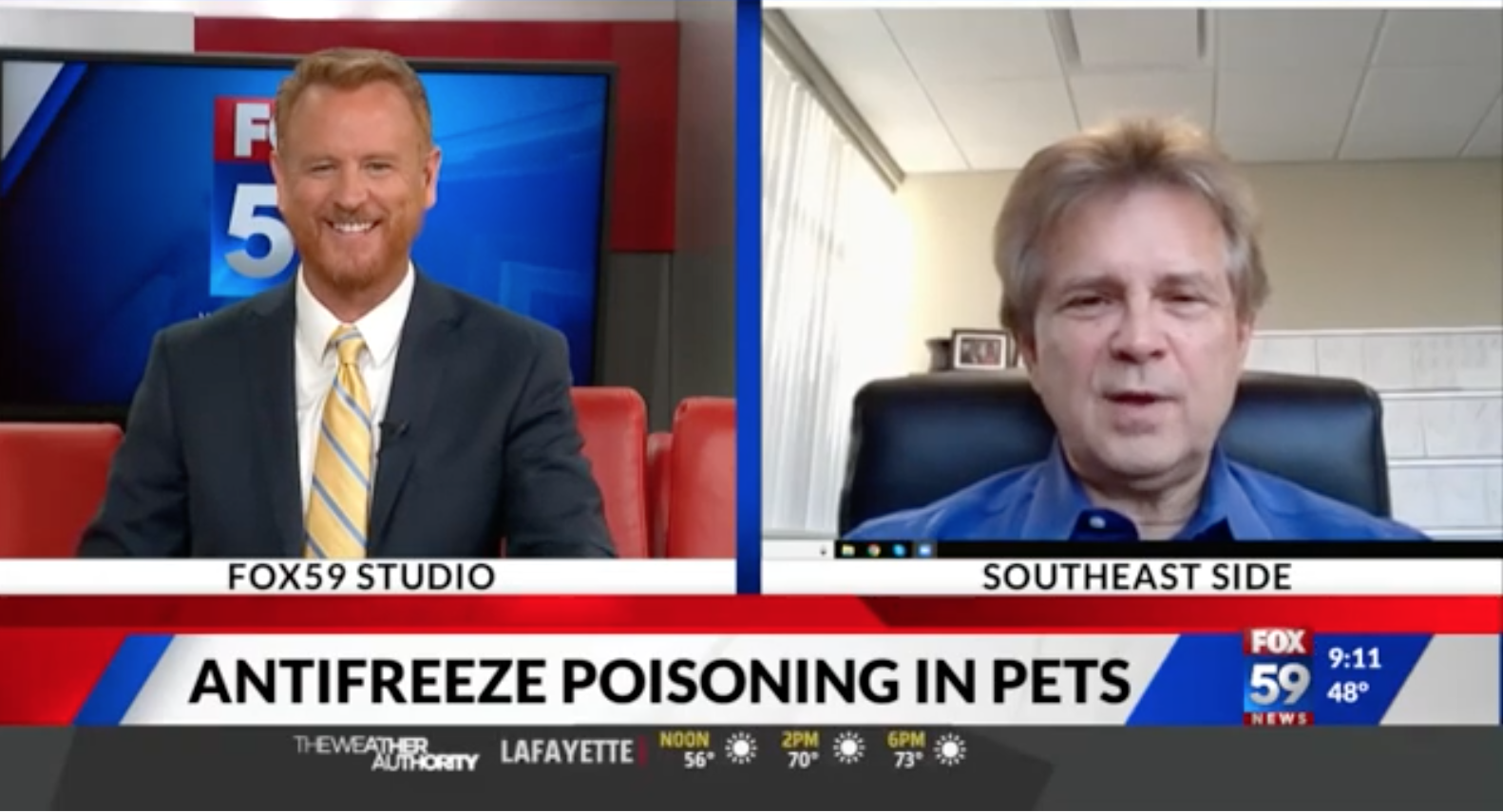As the colder months approach, antifreeze is often used for various reasons to prepare households for the long winter months. Antifreeze poisoning is one of the most common forms of poisoning in small animals, and this is because it is so commonly found in households.
Antifreeze poisoning typically happens when antifreeze drips from a car’s radiator, where it is licked off the ground and ingested by a pet. Your pet may also come into contact with antifreeze that has been added to a toilet bowl. This occurs in homes where the residents will use antifreeze during the cold months to “winterize” their pipes. It is the toxin ethylene glycol that makes antifreeze lethal. Because of this, dogs will consume great quantities of ethylene glycol before being repulsed by its aftertaste. By then, it is too late. It does not take a significant amount of ethylene glycol to cause fatal damage to the system; less than three ounces of antifreeze is sufficient to poison a medium-sized dog, or one tablespoon for the average cat. Antifreeze poisoning affects the brain, liver, and kidneys. Ethylene glycol is also found in engine coolant and hydraulic brake fluids.
What are the Symptoms?
- Delirium
- Wobbly, uncoordinated movement
- Nausea/vomiting
- Excessive urination
- Diarrhea
- Rapid heart beat
- Weakness
- Seizures/convulsions
- Fainting/Coma
Diagnosis:
Seek medical help immediately if your pet shows signs of possible poisoning. Your veterinarian will perform a thorough physical exam on your pet, taking into account the background of symptoms, and possible incidents that might have precipitated this condition. A complete blood profile will be conducted, including a chemical blood profile and a urinalysis. Your veterinarian may want to test the vomit or stool as it may assist the veterinarian in diagnosing the type of poisoning and expedite your dog’s treatment. The treatment will also be based on the medical history presented, so you will need to be as detailed as possible.
Antifreeze poisoning can be easily avoided by following a few simple precautions:
- Keep antifreeze containers tightly closed and stored out of the reach of pets.
- Take care not to spill antifreeze, and if it is spilled, ensure that it is immediately and thoroughly cleaned up.
- Dispose of used antifreeze containers properly.
- Check the radiator of your car regularly, and repair leaks immediately.
- Do not allow your dog to wander unattended where there is access to antifreeze (e.g., roads, gutters, garages, and driveways).

